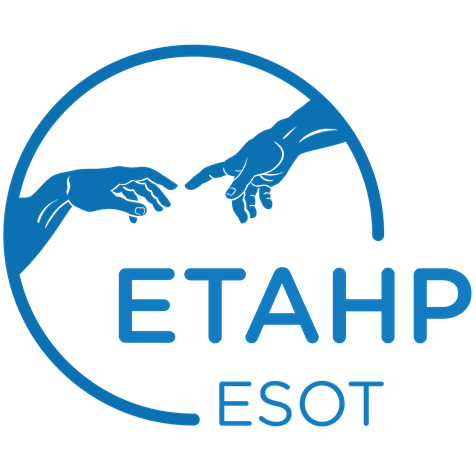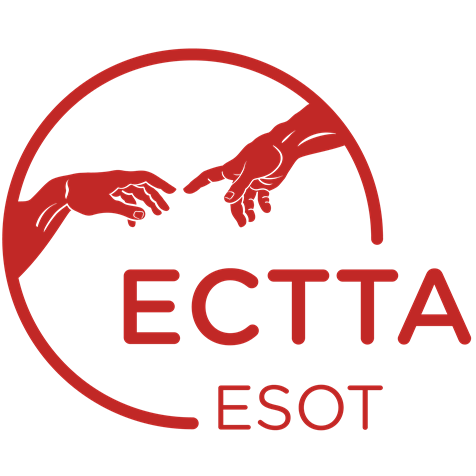Azzi, Y., et al. (2021). “Risks factors associated with poor response to COVID-19 vaccination in kidney transplant recipients.” Kidney International [record in progress].
https://dx.doi.org/10.1016/j.kint.2021.08.019
Bertrand, D., et al. (2021). “Antibody response to SARS-CoV-2 mRNA BNT162b2 vaccine in kidney transplant recipients and in-centre and satellite centre haemodialysis patients.” Clinical Kidney Journal 14(9): 2127-2128.
https://dx.doi.org/10.1093/ckj/sfab100
Chavarot, N., et al. (2021). “Weak antibody response to three doses of mRNA vaccine in kidney transplant recipients treated with belatacept.” American Journal of Transplantation [record in progress].
Poor responses to mRNA COVID-19 vaccine have been reported after 2 vaccine injections in kidney transplant recipients (KTRs) treated with belatacept. We analyzed the humoral response in belatacept-treated KTRs without a history of SARS-CoV-2 infection who received three injections of BNT162b2-mRNA COVID-19 vaccine. We also investigated vaccine immunogenicity in belatacept-treated KTRs with prior COVID-19 and characterized symptomatic COVID-19 infections after the vaccine in belatacept-treated KTRs. Among the 62 belatacept-treated KTRs (36 [58%] males), the median age (63.5 years IQR [51-72]), without COVID-19 history, only four patients (6.4%) developed anti-SARS-CoV-2 IgG with low antibody titers (median 209, IQR [20-409] AU/ml). 71% were treated with mycophenolic acid and 100% with steroids in association with belatacept. In contrast, in all the 5 KTRs with prior COVID-19 history, mRNA vaccine induced a strong antibody response with high antibody titers (median 10 769 AU/ml, IQR [6410-20 069]) after two injections. Seroprevalence after three-vaccine doses in 35 non-belatacept-treated KTRs was 37.1%. Twelve KTRs developed symptomatic COVID-19 after vaccination, including severe forms (50% of mortality). Breakthrough COVID-19 occurred in 5% of fully vaccinated patients. Administration of a third dose of BNT162b2 mRNA COVID-19 vaccine did not improve immunogenicity in KTRs treated with belatacept without prior COVID-19. Other strategies aiming to improve patient protection are needed.
https://dx.doi.org/10.1111/ajt.16814
Crane, C., et al. (2021). “Immunologic response of mRNA SARS-CoV-2 vaccination in adolescent kidney transplant recipients.” Pediatric Nephrology [record in progress].
BACKGROUND: In the general population, mRNA SARS-CoV-2 vaccines are highly efficacious. Early reports suggest a diminished antibody response in immunosuppressed adult solid organ transplant (SOT) patients, but this has not been reported in pediatrics.
METHODS: Adolescent kidney transplant recipients (KTR) at our center who received both doses of an mRNA SARS-CoV-2 vaccine had SARS-CoV-2 spike (S) protein antibody presence evaluated 4-8 weeks after their second dose of the vaccine as part of routine clinical care.
RESULTS: Thirteen of 25 fully vaccinated patients (52%) had a positive spike antibody. Median age of participants was 19 years old (IQR 18-20) and the median time from transplant was 5 years (IQR 4-9 years). KTR were treated with an immunosuppression regimen including a calcineurin inhibitor, corticosteroid, and antimetabolite (9 with mycophenolate, 3 with azathioprine, and 1 without an antimetabolite due to viremia). Of those who had an antibody response, fewer had a mycophenolate-containing immunosuppressant regimen than non-responders. There was a trend toward better vaccine response and higher anti-S antibody titers at lower doses of mycophenolate. Three patients with prior COVID-19 infection all had a positive antibody response.
CONCLUSION: Our results suggest vaccine response in adolescent KRT is lower than that of the general population, but similar to that previously described in adult SOT patients and slightly better than that seen in adult KTR. This data demonstrates vaccination is safe and supports immunizing KTR who remain hesitant. Future studies should focus on better understanding of the cellular immune response to vaccination and strategies to enhance vaccine immunogenicity in pediatric SOT patients.
https://dx.doi.org/10.1007/s00467-021-05256-9
Grupper, A., et al. (2021). “Kidney transplant recipients vaccinated before transplantation maintain superior humoral response to SARS-CoV-2 vaccine.” Clinical Transplantation [record in progress]: e14478.
Majority of transplant recipients did not develop an appreciable humoral response following SARS-CoV-2 vaccine, in contrast to dialysis patients and healthy individuals. We analyzed the serologic response to BNT162b2 (Pfizer-BioNTech) vaccine in a cohort of 19 kidney transplant recipients, vaccinated prior to transplantation, compare to 109 recipients vaccinated after transplantation, and to 39 healthcare workers, by determining the level of anti-spike antibodies after transplantation. All controls and 17 of 19 (90%) of recipients vaccinated before transplant were seropositive, while only 49 of 109 (45%) recipients vaccinated post-transplant had positive serology (p<0.001). Median anti-spike IgG in the group of kidney transplant recipients vaccinated after transplantation (10.7 AU/mL, (IQR 0-62.5)) was lower than the patients vaccinated before transplantation (66.2 AU/mL (21.6-138)), which was significantly lower than in the controls (156 AU/mL (99.7-215.5)). Negative humoral response was associated with vaccination post transplantation [odds ratio 22.4], older age [OR = 1.04], and longer time on dialysis [OR = 1.02], while higher lymphocyte count at time of vaccination was protective [OR = 0.52]. Our findings of sustained superior humoral response to SARS-CoV-2 vaccine in kidney transplant recipients vaccinated prior to transplantation strongly support the recommendations of SARS-CoV-2 vaccination of transplant candidates, especially those younger than 60 years.
https://dx.doi.org/10.1111/ctr.14478
Hallett, A. M., et al. (2021). “SARS-CoV-2 messenger RNA vaccine antibody response and reactogenicity in heart and lung transplant recipients.” Journal of Heart & Lung Transplantation [record in progress].
BACKGROUND: While several studies have observed that solid organ transplant recipients experience diminished antibody responses to SARS-CoV-2 mRNA vaccination, data specific to heart and lung transplant (HT/LT) recipients remains sparse.
METHODS: US adult HT and LT recipients completed their vaccine series between January 7 and April 10, 2021. Reactogencity and SARS-CoV-2 anti-spike antibody were assessed after a priming dose (D1) and booster dose (D2). Modified Poisson regression with robust variance estimator was used to evaluate associations between participant characteristics and antibody development.
RESULTS: Of 134 heart recipients, there were 38% non-responders (D1-/D2-), 48% booster responders (D1-/D2+), and 14% priming dose responders (D1+/D2+). Of 103 lung recipients, 64% were non-responders, 27% were booster responders, and 9% were priming dose responders. Lung recipients were less likely to develop antibodies (p < .001). Priming dose antibody response was associated with younger recipient age (p = .04), transplant-to-vaccination time >=6 years (p < .01), and lack of anti-metabolite maintenance immunosuppression (p < .001). Pain at injection site was the most commonly reported reaction (85% after D1, 76% after D2). Serious reactions were rare, the most common being fatigue (2% after D1 and 3% after D2). No serious adverse events were reported.
CONCLUSIONS: HT and LT recipients experienced diminished antibody response following vaccination; reactogenicity was comparable to that of the general population. LT recipients may exhibit a more impaired antibody response than HT recipients. While current recommendations are to vaccinate eligible candidates and recipients, further studies characterizing the cell-mediated immune response and clinical efficacy of these vaccines in this population are needed.
https://dx.doi.org/10.1016/j.healun.2021.07.026
Masset, C., et al. (2021). “A third injection of BNT162b2 mRNA Covid-19 vaccine in kidney transplant recipients improves the humoral immune response.” Kidney International [record in progress].
https://dx.doi.org/10.1016/j.kint.2021.08.017
Qin, C. X., et al. (2021). “Antibody Response to 2-Dose SARS-CoV-2 mRNA Vaccination in Pediatric Solid Organ Transplant Recipients.” American Journal of Transplantation [record in progress].
While many adult solid organ transplant recipients (SOTRs) have impaired antibody response to severe acute respiratory syndrome coronavirus 2 (SARS-CoV-2) vaccination, pediatric SOTRs’ response has not been assessed.<sup>1-2</sup> We report the immunogenicity and safety of BNT162b2 mRNA vaccination in pediatric SOTRs.
https://dx.doi.org/10.1111/ajt.16841
Ruether, D. F., et al. (2021). “SARS-CoV2-specific humoral and T-cell immune response after second vaccination in liver cirrhosis and transplant patients.” Clinical Gastroenterology & Hepatology [record in progress].
BACKGROUND AND AIMS: Detailed information on the immune response after second vaccination of cirrhotic patients and liver transplant (LT) recipients against SARS-CoV-2 is largely missing. We aimed at comparing the vaccine-induced humoral and T-cell responses of these vulnerable patient groups.
METHODS: In this prospective cohort study, anti-SARS-CoV-2 spike-protein titers were determined using the DiaSorin LIAISON (anti-S Trimer) and Roche Elecsys (anti-S RBD) immunoassays in 194 patients (141 LT, 53 cirrhosis Child-Pugh A-C) and 56 healthy controls before and 10-84 days after second vaccination. The spike-specific T-cell response was assessed using an IFN-gamma release assay (IGRA, EUROIMMUN). A logistic regression analysis was performed to identify predictors of low response.
RESULTS: After the second vaccination, seroconversion was achieved in 63% of LT recipients and 100% of cirrhotic patients and controls using the anti-S Trimer assay. Median anti-SARS-CoV-2 titers of responding LT recipients were lower compared to cirrhotic patients and controls (p<0.001). Spike-specific T-cell response rates were 36.6%, 65.4%, and 100% in LT, cirrhosis, and controls, respectively. Altogether, 28% of LT recipients did neither develop a humoral nor a T-cell response after second vaccination. In LT recipients, significant predictors of absent or low humoral response were age >65y (OR: 4.57, 95%-CI 1.48-14.05) and arterial hypertension (OR: 2.50, 95%-CI 1.10-5.68), whereas vaccination failure was less likely with calcineurin inhibitor monotherapy than with other immunosuppressive regimens (OR: 0.36, 95%-CI 0.13-0.99).
CONCLUSION: Routine serological testing of the vaccination response and a third vaccination in patients with low or absent response seem advisable. These vulnerable cohorts need further research on the effects of heterologous vaccination and intermittent reduction of immunosuppression before booster vaccinations.
https://dx.doi.org/10.1016/j.cgh.2021.09.003
Schmidt, T., et al. (2021). “Cellular immunity predominates over humoral immunity after homologous and heterologous mRNA and vector-based COVID-19 vaccine regimens in solid organ transplant recipients.” American Journal of Transplantation [record in progress].
Knowledge on the immunogenicity of vector-based and mRNA-vaccines in solid organ transplant recipients is limited. Therefore, SARS-CoV-2-specific T cells and antibodies were analyzed in 40 transplant recipients and 70 controls after homologous or heterologous vaccine-regimens. Plasmablasts and SARS-CoV-2-specific CD4 and CD8 T cells were quantified using flow cytometry. Specific antibodies were analyzed by ELISA and neutralization assay. The two vaccine types differed after the first vaccination, as IgG and neutralizing activity were more pronounced after mRNA priming (p = .0001 each), whereas CD4 and CD8 T cell levels were higher after vector priming (p = .009; p = .0001). All regimens were well tolerated, and SARS-CoV-2-specific antibodies and/or T cells after second vaccination were induced in 100% of controls and 70.6% of transplant recipients. Although antibody and T cell levels were lower in patients, heterologous vaccination led to the most pronounced induction of antibodies and CD4 T cells. Plasmablast numbers were significantly higher in controls and correlated with SARS-CoV-2-specific IgG- and T cell levels. While antibodies were only detected in 35.3% of patients, cellular immunity was more frequently found (64.7%) indicating that assessment of antibodies is insufficient to identify COVID-19-vaccine responders. In conclusion, heterologous vaccination seems promising in transplant recipients, and combined analysis of humoral and cellular immunity improves the identification of responders among immunocompromised individuals.
https://dx.doi.org/10.1111/ajt.16818
Serper, M., et al. (2021). “A pragmatic outreach pilot to understand and overcome barriers to COVID-19 vaccination in abdominal organ transplant.” Transplant Infectious Disease [record in progress].
BACKGROUND: Solid organ transplant recipients (SOTRs) are at increased risk for adverse outcomes with COVID-19. Early data shows a lower SARS-CoV-2 spike antibody immune response among SOTRs leading to patient concerns about vaccine efficacy. Public health messaging has largely left out immunocompromised individuals leading to a higher risk of vaccine misinformation. The American Society of Transplantation recommends COVID-19 vaccination for all SOTRs, however, patient concerns and beliefs about vaccination are largely unknown.
METHODS: We conducted a transplant-center-based, pragmatic pilot trial to encourage COVID-19 vaccination among 103 unvaccinated SOTRs. We assessed vaccine concerns, barriers to vaccination, answered questions about efficacy, side effects, and clinical recommendations.
RESULTS: A total of 24% (n = 25) of SOTRs reported that they will schedule COVID-19 vaccination after the study call, 46% reported that they will consider vaccination in the future, and 30% said they will not consider vaccination. Older age and White race were associated with lower willingness to schedule the vaccine, whereas Black race and longer time from transplant were associated with higher willingness. Common vaccine concerns included lack of long-term data, inconsistent messaging from providers, scheduling inconvenience, and insufficient resources. Follow-up approximately one month after the initial outreach found 52% (n = 13) of liver transplant recipients (LTRs) and 10% (n = 3) of kidney transplant recipients (KTRs) subsequently received COVID-19 vaccines for a vaccination rate of 29% among respondents.
CONCLUSION: Transplant center-based vaccine outreach efforts can decrease misinformation and increase vaccination uptake; however, vaccine-related mistrust remains high. This article is protected by copyright. All rights reserved.
https://dx.doi.org/10.1111/tid.13722
Thuluvath, P. J., et al. (2021). “Analysis of antibody responses after COVID-19 vaccination in liver transplant recipients and those with chronic liver diseases.” Journal of Hepatology [record in progress].
BACKGROUND &AIMS: Liver transplant (LT) recipients or other immunocompromised patients were not included in the registration trials of vaccine studies against SARS-CoV-2. Although clinical efficacy of COVID vaccines in immunocompromised patients was unknown, many societies had recommended vaccination of this highly vulnerable patient population.
METHODS: In this prospective study, we determined antibody (Ab) response to spike protein, 4 weeks after the 2<sup>nd</sup> dose of mRNA vaccines or after the single dose of Johnson & Johnson vaccine, in LT recipients and those with chronic liver diseases (CLD) with and without cirrhosis.
RESULTS: Of the 233 patients enrolled so far, 62 had LT, 79 had cirrhosis (10 decompensated) and 92 had CLD without cirrhosis. Ab titers were defined as undetectable (<0.40 U/mL), suboptimal (0.40 – 250 U/mL) and adequate (>250 U/mL). Of the 62 patients who had LT, Ab levels were undetectable in 11 patients and suboptimal (median titer 17.6, range 0.47 – 212 U/mL) in 27 patients. Among 79 patients with cirrhosis, 3 had undetectable Ab and 15 had suboptimal (median titer 41.3, range 0.49 – 221 U/L) response. Of the 92 patients without cirrhosis, four had undetectable Ab and 19 had suboptimal (median titer 95.5, range 4.9 – 234 U/L) Ab response. Liver transplantation, use of 2 or more immunosuppression medications and vaccination with a single dose of Johnson & Johnson vaccine were associated with poor immune response on multivariable analysis. No patient had any serious adverse events.
CONCLUSIONS: Poor antibody response after SARS-CoV-2 vaccination was seen in 61% of LT recipients and 24% of those with CLD.
LAY SUMMARY: The clinical efficacy of COVID vaccines in immunocompromised patients is unknown. We did a prospective study to evaluate immune responses to COVID vaccines (Moderna, Pfizer or Johnson & Johnson) in 62 liver transplant recipients, 79 subjects with cirrhosis and 92 subjects with chronic liver diseases without cirrhosis. We found that 17.8% of liver transplant recipients, 3.8% of those with cirrhosis and 4.3% of those with chronic liver diseases without cirrhosis had undetectable antibody levels. In total, 61.3% of liver transplant recipients and 24% of those with chronic liver diseases (with or without cirrhosis) had poor antibody response (undetectable or suboptimal). Liver transplantation, use of immunosuppressive medications and vaccination with a single dose of Johnson & Johnson vaccine were associated with poor antibody response when adjusted for other factors.
https://dx.doi.org/10.1016/j.jhep.2021.08.008
Villanego, F., et al. (2021). “Protecting kidney transplant recipients against SARS-CoV-2 infection: A third dose of vaccine is necessary now.” American Journal of Transplantation [record in progress].
https://dx.doi.org/10.1111/ajt.16829
Benotmane, I., et al. (2021). “Strong antibody response after a first dose of a SARS-CoV-2 mRNA-based vaccine in kidney transplant recipients with a previous history of COVID-19.” American Journal of Transplantation [record in progress].
https://dx.doi.org/10.1111/ajt.16764
Boyarsky, B. J., et al. (2021). “SARS-CoV-2 Messenger RNA Vaccine Immunogenicity in Solid Organ Transplant Recipients With Prior COVID-19.” Transplantation [record in progress].
https://dx.doi.org/10.1097/TP.0000000000003900
Boyarsky, B. J., et al. (2021). “Antibody Kinetics and Durability in SARS-CoV-2 mRNA Vaccinated Solid Organ Transplant Recipients.” Transplantation [record in progress].
https://dx.doi.org/10.1097/TP.0000000000003863
Chenxi Song, C., et al. (2021). “Early experience with SARs-CoV-2 mRNA vaccine breakthrough among kidney transplant recipients.” Transplant Infectious Disease [record in progress]: e13654.
https://dx.doi.org/10.1111/tid.13654
Harhay, M. N., et al. (2021). “Living Organ Donor Perspectives and Sources of Hesitancy about COVID-19 Vaccines.” Kidney360 2(7): 1132-1140.
BACKGROUND: Living organ donation declined substantially in the United States during the COVID-19 pandemic due to concerns about donor and transplant candidate safety. COVID-19 vaccines might increase confidence in the safety of living organ donation during the pandemic. We assessed informational preferences and perspectives about COVID-19 vaccines among US living organ donors and prospective donors. METHODS: We conducted a national survey study of organ donors and prospective donors on social media platforms between 12/28/2020-2/23/2021. Survey items included multiple choice, visual analog scale, and open-ended responses. We examined associations between information preferences, history of COVID-19 infection, influenza vaccination history and COVID-19 vaccine acceptance using multivariable logistic regression and performed a thematic analysis of open-ended responses. RESULTS: Among 342 respondents from 47 US states and the District of Columbia, 35% were between 51-70 years old, 90% were non-Hispanic white, 87% were women; 82% were living donors (94% kidney) and 18% in evaluation to donate (75% kidney).The majority planned to or had received COVID-19 vaccination (76%), whereas 11% did not plan to be receive a vaccine, and 12% were unsure. Adjusting for demographics and donor characteristics, respondents who receive yearly influenza vaccinations had higher COVID-19 vaccine acceptance than those who do not (adjusted Odds Ratio [aOR] 5.06, 95% Confidence Interval [CI] 2.68-9.53). Compared to respondents who prioritized medical information sources (e.g., personal physicians and transplant providers), those who prioritized news and social media had lower COVID-19 vaccine acceptance (aOR 0.34, 95% CI 0.15-0.73). Low perceived personal benefit from vaccination and uncertainty about long-term safety were common themes among those declining COVID-19 vaccines. CONCLUSIONS: Donor informational source preferences were strongly associated with the likelihood of accepting a COVID-19 vaccine. Vaccine guidance for organ donors who are unsure about COVID-19 vaccines could incorporate messaging about safety and benefits of vaccination for healthy people.
https://dx.doi.org/10.34067/kid.0002112021
Herrera, S., et al. (2021). “Cellular and humoral immune response after mRNA-1273 SARS-CoV-2 vaccine in liver and heart transplant recipients.” American Journal of Transplantation [record in progress].
Recently published studies have found an impaired immune response after SARS-CoV-2 vaccination in solid organ recipients. However, most of these studies have not assessed immune cellular responses in liver and heart transplant recipients. We prospectively studied heart and liver transplant recipients eligible for SARS-CoV-2 vaccination. Patients with past history of SARS-CoV-2 infection or SARS-CoV-2 detectable antibodies (IgM or IgG) were excluded. We assessed IgM/IgG antibodies and ELISpot against the S protein 4 weeks after receiving the second dose of the mRNA-1273 (Moderna) vaccine. Side effects, troponin I, liver tests and anti-HLA donor-specific antibodies (DSA) were also assessed. A total of 58 liver and 46 heart recipients received two doses of mRNA-1273 vaccine. Median time from transplantation to vaccination was 5.4 years (IQR 0.3-27). Sixty-four percent of the patients developed SARS-CoV-2 IgM/IgG antibodies and 79% S-ELISpot positivity. Ninety percent of recipients developed either humoral or cellular response (87% in heart recipients and 93% in liver recipients). Factors associated with vaccine unresponsiveness were hypogammaglobulinemia and vaccination during the first year after transplantation. Local and systemic side effects were mild or moderate, and none presented DSA or graft dysfunction after vaccination. Ninety percent of our patients did develop humoral or cellular responses to mRNA-1273 vaccine. Factors associated with vaccine unresponsiveness were hypogammaglobulinemia and vaccination during the first year after transplantation, highlighting the need to further protect these patients.
https://dx.doi.org/10.1111/ajt.16768
Hod, T., et al. (2021). “Humoral Response of Renal Transplant Recipients to the BNT162b2 SARS-CoV-2 mRNA Vaccine Using Both RBD IgG and Neutralizing Antibodies.” Transplantation [record in progress].
BACKGROUND: Data about SARS-CoV-2 vaccines efficacy in renal transplant recipients (RTR) is lacking. METHODS: To reveal predictors for humoral response to BNT162b2 vaccine among RTR, patients were divided to positive (N=42) and negative (N=78) response groups based on receptor-binding domain (RBD) IgG >= 1.1 and neutralizing antibodies (NA) >= 16 dilution versus RBD IgG < 1.1 or NA < 16 respectively. NA were detected using a SARS-CoV-2 pseudo-virus. RESULTS: NA were detected in only 42/120 (35%) of RTR vs. 197/202 (97.5%) immunocompetent controls (p < 0.001). NA geometric mean titers (GMTs) in RTR were significantly lower vs. the control group [83.7 (95% CI 50.5-138.8) vs. 482 (95% CI 411-566), p < 0.001]. In a multivariable analysis, mycophenolic acid (MPA) dose and hemoglobin (Hb) level were found to be independent predictors for antibody response in RTR. A positive response rate of 27% vs. 63% was observed in patients on and off MPA, respectively. An increase in MPA dose by 1 mg/kg weight reduced the odds for a positive response by 17% (OR 0.83, 95% CI 0.75-0.92, p<0.001). GMTs for RBD IgG were significantly reduced as MPA daily dose increased. Hb blood level < 13 g/dL reduced the antibody response by 63% (p=0.04). Pain at the injection site after the second vaccine dose was significantly higher in the responders vs. nonresponders (20.5% vs. 5.5%, p=0.01). CONCLUSIONS: Only 35% of RTR develop NA to the BNT162b2 mRNA vaccine. MPA is a major suppressor of antibody response in RTR.
https://dx.doi.org/10.1097/tp.0000000000003889
Holden, I. K., et al. (2021). “Immunogenicity of SARS-CoV-2 mRNA vaccine in solid organ transplant recipients.” Journal of Internal Medicine [record in progress].
BACKGROUND: It is currently not well described if a two-dose regimen of a Covid-19 vaccine is sufficient to elicit an immune response in SOT recipients.
RESULTS: A total of 80 solid organ transplant (SOT) recipients completed a two-dose regimen with SARS-CoV-2 messenger RNA vaccine. Only 35.0% (n = 28) were able to mount a positive IgG immune response six weeks after the second dose of vaccine.
CONCLUSION: This emphasizes that SOT recipients need continued use of personal protective measures. Future studies need to closely examine the cellular immune response in patients with compromised antibody response to Covid-19 vaccination.
https://dx.doi.org/10.1111/joim.13361
Malinis, M., et al. (2021). “Effectiveness of SARS-CoV-2 vaccination in fully vaccinated solid organ transplant recipients.” American Journal of Transplantation 21(8): 2916-2918.
The COVID‐19 pandemic has disproportionately impacted immunosuppressed patients, including solid organ transplant recipients (SOTR). COVID‐19‐associated mortality among SOTR was estimated at 20.5% in the early phase of the pandemic(1). SARS‐CoV‐2 vaccination may help reduce the morbidity and mortality of COVID‐19 among SOTR. Under emergency use authorization, the US Food Drug Administration approved two SARS‐CoV‐2 messenger RNA vaccines [BNT162b2 (Pfizer), mRNA‐1273 (Moderna)] and an adenovirus vector‐based vaccine [Ad26.COV2.S (Johnson and Johnson)].
https://dx.doi.org/10.1111/ajt.16713
Mazzola, A., et al. (2021). “Poor Antibody Response after Two Doses of SARS-CoV-2 vaccine in Transplant Recipients.” Clinical Infectious Diseases [record in progress].
A low anti-spike antibody response of 28.6% was observed 28 days after BNT162b2 vaccine second dose among 133 solid organ transplant-recipients without previous COVID-19. No serious adverse events were recorded. Four severe COVID-19 cases were reported between or after the two doses. Our data suggests to change the vaccine strategy.
https://dx.doi.org/10.1093/cid/ciab580
Narasimhan, M., et al. (2021). “Serological Response in Lung Transplant Recipients after Two Doses of SARS-CoV-2 mRNA Vaccines.” Vaccines 9(7): 708.
BACKGROUND: Lung-transplant (LT) recipients are at high risk for COVID-19 due to immunosuppression and respiratory tropism of SARS-CoV-2. The information on the effect of COVID-19 mRNA vaccines to elicit immunogenic responses after a two-dose (2D) regimen in LT recipients is sparse. Thus, we assessed the effect of Pfizer-BioNTech and Moderna mRNA vaccines’ 2D regimen on anti-spike responses in immunocompromised LT recipients.
METHODS: We utilized serum samples from LT recipients vaccinated for SARS-CoV-2 with 2D of either the Pfizer-BioNTech or Moderna vaccines and 2D-vaccinated naive (non-transplanted and non-exposed to COVID-19) group. Antibody responses were assessed using the FDA-approved SARS-CoV-2 anti-nucleocapsid protein IgG assay (IgGNC), the SARS-CoV-2 anti-spike protein IgM assay (IgMSP), and the SARS-CoV-2 anti-spike protein IgG II assay (IgGSP). CD4+ T-cell activity was assessed as a marker of immune competence using the ImmuKnow assay.
RESULTS: About 25% (18/73) of SARS-CoV-2 uninfected-LT patients generated a positive spike-IgG response following 2D of vaccines, with 36% (9/25) in the Moderna cohort and only 19% (9/48) in the Pfizer cohort. 2D in LT patients elicited a significantly lesser median IgGSP response (1.7 AU/mL, 95% CI: 0.6-7.5 AU/mL) compared to non-transplanted, uninfected naive subjects (14,209 AU/mL, 95% CI: 11,261-18,836 AU/mL; p < 0.0001). In LT patients, the Moderna-evoked seropositivity trend was higher than Pfizer.
CONCLUSION: 2D COVID-19 vaccination elicits a dampened serological response in LT patients. Whether assessing other arms of host immunity combined with a higher vaccine dose can better capture and elicit improved immunogenicity in this immunocompromised population warrants investigation.
https://dx.doi.org/10.3390/vaccines9070708
Oehler, D., et al. (2021). “Moderate acceptance of COVID-19 vaccination in patients pre- and post-heart transplantation: Experiences from a German Transplant Centre.” Transplant Infectious Disease [record in progress]: e13681.
INTRODUCTION AND OBJECTIVES: Patients awaiting heart transplantation (HTx) are at increased risk developing severe coronavirus disease 2019 (COVID-19). Patients supported by a left ventricular assist device (LVAD) face additional risks due to coagulopathies during COVID-19. Following HTx, elevated risk factors for severe COVID-19 persist due to chronic immunosuppression and frequent comorbidities. Taken together, COVID-19 vaccination is of critical importance in all three patient cohorts. Here, we report our experience to deliver COVID-19 vaccination in a German transplant center.
METHODS AND RESULTS: We screened 211 patients for contraindications and offered the remaining 186 eligible patients COVID-19 vaccination. Of those, 133 patients (71%) accepted the offer and were vaccinated. Acceptance of vaccination differed between HTx recipients (84 of 113, 74%), patients on the waiting list (34 of 47, 72%), and patients with LVAD support (28 of 50, 56%). The LVAD cohort demonstrated lower acceptance levels for vaccination compared to HTx recipients and patients awaiting HTx (74% vs. 56%; p = 0.028).
CONCLUSION: We demonstrate for the first time only moderate acceptance levels of COVID-19 vaccination in HTx recipients and candidates on the waiting list compared to general population, despite perceived high-risk for severe disease. Additionally, those supported by LVAD have even lower adherence. Efforts may need to be made to increase acceptance in this vulnerable as well as cost-intensive patient cohort.
https://dx.doi.org/10.1111/tid.13681
Rashidi-Alavijeh, J., et al. (2021). “Humoral Response to SARS-Cov-2 Vaccination in Liver Transplant Recipients-A Single-Center Experience.” Vaccines 9(7).
Vaccination against SARS-CoV-2 infection is currently approved and shows favorable outcomes, but little known about antibody responses in solid organ transplant recipients, since these patients are known to have an impaired immune response upon vaccination and have not been included in admission studies. We therefore analyzed immunogenicity in 43 liver transplant (LT) recipients in a median of 15 days (IQR, 12-24) after receiving two doses of the mRNA-based SARS-CoV-2 vaccine BNT162b2 following the standard protocol, and compared these results to a control group consisting of 20 healthcare workers (HCWs). Thirty-four of the 43 (79%) LT recipients developed antibodies, compared to 20 out of 20 (100%) in the control group (p = 0.047). The median SARS-CoV-2 IgG titer was significantly lower in the LT recipients compared to the control group (216 vs. >2080 BAU/mL, p = 0.0001). Age and sex distribution was similar in the LT patients that developed antibodies after vaccination compared to those who did not. Interestingly, the patients who received mycophenolate mofetil exhibited a reduced vaccination response compared to the other LT patients (5 of 11 (45.5%) vs. 29 of 32 (90.6%), p = 0.004). In conclusion, our data reveal lower immunogenicity of SARS-CoV-2 vaccine BNT162b2 in LT patients compared to the control group, but still show superior results compared to other solid organ transplant recipients reported so far.
https://dx.doi.org/10.3390/vaccines9070738
Schramm, R., et al. (2021). “Poor humoral and T-cell response to two-dose SARS-CoV-2 messenger RNA vaccine BNT162b2 in cardiothoracic transplant recipients.” Clinical Research in Cardiology 110(8): 1142-1149.
AIMS: Immunocompromised patients have been excluded from studies of SARS-CoV-2 messenger RNA vaccines. The immune response to vaccines against other infectious agents has been shown to be blunted in such patients. We aimed to analyse the humoral and cellular response to prime-boost vaccination with the BNT162b2 vaccine (Pfizer-BioNTech) in cardiothoracic transplant recipients.
METHODS AND RESULTS: A total of 50 transplant patients [1-3 years post heart (42), lung (7), or heart-lung (1) transplant, mean age 55 +/- 10 years] and a control group of 50 healthy staff members were included. Blood samples were analysed 21 days after the prime and the boosting dose, respectively, to quantify anti-SARS-CoV-2 spike protein (S) immunoglobulin titres (tested by Abbott, Euroimmun and RocheElecsys Immunoassays, each) and the functional inhibitory capacity of neutralizing antibodies (Genscript). To test for a specific T-cell response, heparinized whole blood was stimulated with SARS-CoV-2 specific peptides, covering domains of the viral spike, nucleocapsid and membrane protein, and the interferon-gamma release was measured (QuantiFERON Monitor ELISA, Qiagen). The vast majority of transplant patients (90%) showed neither a detectable humoral nor a T-cell response three weeks after the completed two-dose BNT162b2 vaccination; these results are in sharp contrast to the robust immunogenicity seen in the control group: 98% exhibited seroconversion after the prime dose already, with a further significant increase of IgG titres after the booster dose (average > tenfold increase), a more than 90% inhibition capability of neutralizing antibodies as well as evidence of a T-cell responsiveness.
CONCLUSIONS: The findings of poor immune responses to a two-dose BNT162b2 vaccination in cardiothoracic transplant patients have a significant impact for organ transplant recipients specifically and possibly for immunocompromised patients in general. It urges for a review of future vaccine strategies in these patients.
https://dx.doi.org/10.1007/s00392-021-01880-5
Tsapepas, D., et al. (2021). “Perspectives on COVID-19 vaccination among kidney and pancreas transplant recipients living in New York City.” American Journal of Health System Pharmacy [record in progress].
PURPOSE: Solid organ transplant recipients are at increased risk of morbidity and mortality from coronavirus disease 2019 (COVID-19), but limited vaccine access and vaccine hesitancy can complicate efforts for expanded vaccination. We report patient perspectives and outcomes from a vaccine outreach initiative for a vulnerable population of transplant recipients living in New York City.
METHODS: This was a retrospective review of qualitative perspectives from a COVID-19 vaccine outreach initiative. In the outreach effort, kidney and pancreas transplant recipients under care at the transplant center at NewYork-Presbyterian Hospital were initially contacted electronically with educational material about vaccination followed by telephone outreach to eligible unvaccinated patients. Calls were used to schedule vaccine appointments for patients who agreed, answer questions, and assess attitudes and concerns for patients not yet ready to be vaccinated, with conversational themes recorded.
RESULTS: Of the 1,078 patients living in the 5 New York City boroughs who had not reported receiving COVID-19 vaccination, 320 eligible patients were contacted by telephone. Of these, 210 patients were scheduled for vaccination at our vaccine site (including 13 who agreed to vaccination after initially declining), while 110 patients were either not ready or not interested in being vaccinated. The total number of patients willing to be vaccinated was 554 when also including those already vaccinated. Unwillingness to be vaccinated was associated with younger age (median age of 47 vs 60 years, P < 0.001), Black race (P = 0.004), and residence in Bronx or Brooklyn counties (P = 0.018) or a zip code with a medium level of poverty (P = 0.044). The most common issues raised by patients who were ambivalent or not interested in vaccination were regarding unknown safety of the vaccines in general, a belief that there was a lack of data about the vaccines in transplant recipients, and a lack of trust in the scientific process underlying vaccine development, with 34% of the patients contacted expressing vaccine hesitancy overall.
CONCLUSION: Our qualitative summary identifies determinants of COVID-19 vaccine hesitancy in a diverse transplant patient population, supporting the need for transplant centers to implement tailored interventions to increase vaccine acceptance in this vulnerable population.
https://dx.doi.org/10.1093/ajhp/zxab272
Werbel, W. A., et al. (2021). “Safety and Immunogenicity of a Third Dose of SARS-CoV-2 Vaccine in Solid Organ Transplant Recipients: A Case Series.” Annals of Internal Medicine [record in progress].
https://dx.doi.org/10.7326/L21-0282
Anjan, S., et al. (2021). “Breakthrough COVID-19 infections after mRNA vaccination in Solid Organ Transplant Recipients in Miami, Florida.” Transplantation [record in progress].
https://dx.doi.org/10.1097/TP.0000000000003902
Aslam, S., et al. (2021). “Clinical effectiveness of COVID-19 vaccination in solid organ transplant recipients.” Transplant Infectious Disease [record in progress]: e13705.
GOAL: We aimed to assess the incidence rate of coronavirus disease 2019 (COVID-19) in vaccinated versus unvaccinated solid organ transplant recipients (SOTR) at our center.
METHODS: We abstracted the following clinical data from our transplant registry from 1/1/2021 to 6/2/2021: demographics, details of COVID-19 vaccination, incidence of COVID-19, and related mortality. We calculated incidence of symptomatic COVID-19 per 1000/person days at risk and incidence rate ratio (IRR).
RESULTS: Among 2151 SOTRs, 912 were fully vaccinated, and 1239 were controls (1151 unvaccinated, 88 partially vaccinated). Almost 70% of vaccinated subjects received the mRNA-1273 vaccine. There were 65 cases of COVID-19 that occurred during the study period – four occurred among fully vaccinated individuals and 61 among controls (including two in partially vaccinated individuals). Incidence rate for COVID-19 was 0.065 (95% CI 0.024-0.17) per 1000 person days in vaccinated versus 0.34 (95% CI 0.26-0.44) per 1000/person days in the control group; IRR was 0.19 (95% CI 0.049 -0.503, p < 0.005). There were no COVID-19 related deaths in the four breakthrough infections and two of 61 (3.3%) among controls.
CONCLUSION: We demonstrate real world clinical effectiveness of COVID-19 vaccination in SOTRs with an almost 80% reduction in the incidence of symptomatic COVID-19 versus unvaccinated SOTRs during the same time.
https://dx.doi.org/10.1111/tid.13705
Axelrod, D. A., et al. (2021). “Operational challenges in the COVID era: Asymptomatic infections and vaccination timing.” Clinical Transplantation [record in progress].
The coronavirus disease 2019 (COVID-19) pandemic has created unprecedented challenges for solid organ transplant programs. While transplant activity has largely recovered, appropriate management of deceased donor candidates who are asymptomatic but have positive nucleic acid test (NAT) for COVID-19 is unclear as this may reflect active infection or prolonged viral shedding. Furthermore, candidates who are unvaccinated or partially vaccinated continue to receive donor offers. In the absence of prospective data, transplant professionals at U.S. adult kidney transplant centers were surveyed to determine community practice (N: 92 centers, capturing 40.8% of centers and 56.6% of transplants performed). The majority (96.8%) of responding centers declined organs for asymptomatic NAT+ patients without documented prior infection. However, 31.6% of centers proceeded with kidney transplant in NAT+ patients who were at least 30 days from initial diagnosis with negative chest imaging. Less than 7% of programs reported inactivating patients who were unvaccinated or partially vaccinated. In conclusion, despite national recommendations to wait for negative testing, many centers are proceeding with transplant in patients with positive tests due to presumed viral shedding. Furthermore, very few centers are requiring COVID-19 vaccination prior to transplantation despite early evidence suggesting reduced immunogenicity in transplant patients on immunosuppression. This article is protected by copyright. All rights reserved.
https://dx.doi.org/10.1111/ctr.14437
Benotmane, I., et al. (2021). “Antibody Response After a Third Dose of the mRNA-1273 SARS-CoV-2 Vaccine in Kidney Transplant Recipients With Minimal Serologic Response to 2 Doses.” JAMA [record in progress].
https://dx.doi.org/10.1001/jama.2021.12339
Cao, J., et al. (2021). “Poor Humoral Response in Solid Organ Transplant Recipients following Complete mRNA SARS-CoV-2 Vaccination.” Clinical Chemistry [record in progress].
https://dx.doi.org/10.1093/clinchem/hvab149
Del Bello, A., et al. (2021). “Efficiency of a boost with a third dose of anti-SARS-CoV-2 messenger RNA-based vaccines in solid organ transplant recipients.” American Journal of Transplantation [record in progress].
A weak humoral response to two-doses of SARS-CoV-2 vaccine was observed in solid organ transplant (SOT) patients (1,2). Preliminary reports suggested the usefulness of a boost with a third dose (3) (4). Herein, we report the humoral response in 396 SOT patients (mean age 59 +/- 15 years, 65 % men) who were given 3 doses messenger RNA-based vaccine (BNT162b2 vaccine [Pfizer-BioNTech]) (Table S1). Of these, 101 were included in our previous report (3). The two first doses were given one month apart, and the third dose was administered 59 (IQR<sub>25-75</sub> : 47-67) days after the second dose, i.e. once the third dose was recommended by the French National Authority for Health.
https://dx.doi.org/10.1111/ajt.16775
Guarino, M., et al. (2021). “Effectiveness of SARS-Cov-2 vaccination in liver transplanted patients: the debate is open!” Journal of Hepatology [record in progress].
https://dx.doi.org/10.1016/j.jhep.2021.07.034
Hall, V. G., et al. (2021). “Humoral and cellular immune response and safety of two-dose SARS-CoV-2 mRNA-1273 vaccine in solid organ transplant recipients.” American Journal of Transplantation [record in progress].
Solid organ transplant recipients are at high risk of severe disease from COVID-19. We assessed the immunogenicity of mRNA-1273 vaccine using a combination of antibody testing, surrogate neutralization assays, and T cell assays. Patients were immunized with two doses of vaccine and immunogenicity assessed after each dose using the above tests. CD4+ and CD8+ T cell responses were assessed in a subset using flow-cytometry. A total of 127 patients were enrolled of which 110 provided serum at all time points. A positive anti-RBD antibody was seen in 5.0% after one dose and 34.5% after two doses. Neutralizing antibody was present in 26.9%. Of note, 28.5% of patients with anti-RBD did not have neutralizing antibody. T cell responses in a sub-cohort of 48 patients showed a positive CD4+ T cell response in 47.9%. Of note, in this sub-cohort, 46.2% of patients with a negative anti-RBD, still had a positive CD4+ T cell response. The vaccine was safe and well-tolerated. In summary, immunogenicity of mRNA-1273 COVID-19 vaccine was modest, but a subset of patients still develop neutralizing antibody and CD4+T- cell responses. Importantly polyfunctional CD4+T cell responses were observed in a significant portion who were antibody negative, further highlighting the importance of vaccination in this patient population. IRB Statement: This study was approved by the University Health Network Research Ethics Board (CAPCR ID 20-6069).
https://dx.doi.org/10.1111/ajt.16766
Haskin, O., et al. (2021). “Serological Response to the BNT162b2 COVID-19 mRNA Vaccine in Adolescent and Young Adult Kidney Transplant Recipients.” Transplantation [record in progress].
BACKGROUND: Initial reports in adult kidney transplant recipients (KTR) indicate low immunogenicity after 2 doses of the BNT162b2 COVID-19 mRNA vaccine. We describe the immunogenicity of this vaccine compared to the serologic response in naturally infected COVID-19 positive adolescent and young adult KTR.
METHODS: For this prospective observational study, the study group included 38 KTR who received 2 doses of the tested vaccine; the control group included 14 KTR who had a previous PCR-confirmed COVID-19 infection.
RESULTS: The mean age was 18+/-3 years. Positive serologic responses were observed in 63% and 100% of the study and control groups, respectively (p=0.01). Antibody titers were almost 30-fold higher in the control than the study group [median, interquartile range (IQR): 2782 (1908-11 000) vs. 100.3 (4.7-1744) U/mL, p<0.001), despite the longer time from the COVID-19 infection to serologic testing compared to time from vaccination [median (IQR): 157.5 (60-216) vs 37 (20.5-53) days, p=0.011]. Among vaccinated patients, higher proportions of those seronegative than seropositive were previously treated with rituximab (50% vs. 8%, p=0.01). Time from the second vaccine dose to serologic testing was longer in seropositive than seronegative patients [median, (IQR) 24.5 (15, 40) vs. 46 (27, 56) days, p=0.05]. No patient developed symptomatic COVID-19 disease postvaccination.
CONCLUSIONS: The BNT162b2 COVID-19 mRNA vaccine yielded higher positive antibody response in adolescent and young adult KTR than previously reported for adult KTR. Antibody titers after vaccination were significantly lower than following COVID-19 infection. Longer time may be required to mount appropriate humoral immunity to vaccination in KTR.
https://dx.doi.org/10.1097/TP.0000000000003922
Midtvedt, K., et al. (2021). “Low Immunization Rate in Kidney Transplant Recipients Also After Dose 2 of the BNT162b2 Vaccine: Continue to Keep Your Guard up!” Transplantation 105(8): e80-e81.
https://dx.doi.org/10.1097/TP.0000000000003856
Montagud-Marrahi, E., et al. (2021). “SARS-CoV-2 Infection After Full Vaccination in Kidney Transplant Recipients.” Transplantation [record in progress].
https://dx.doi.org/10.1097/TP.0000000000003927
Qin, C. X., et al. (2021). “Risk of Breakthrough SARS-CoV-2 Infections in Adult Transplant Recipients.” Transplantation [record in progress].
https://dx.doi.org/10.1097/tp.0000000000003907
Ravanan, R., et al. (2021). “Two Doses of SARS-CoV-2 Vaccines Reduce Risk of Death Due to COVID-19 in Solid Organ Transplant Recipients: Preliminary Outcomes From a UK Registry Linkage Analysis.” Transplantation [record in progress].
https://dx.doi.org/10.1097/TP.0000000000003908
Silvariño, R., et al. (2021). “Recommendations on vaccination against SARS-CoV-2 / COVID-19 in patients with kidney disease and kidney transplantation.” Revista Médica del Uruguay 37(2): e901-e901.
The objective of this document of recommendations is to guide nephrologists and non-nephrologists who assist patients with chronic kidney disease (CKD) at all stages of the disease in the vaccination process against SARS-CoV-2. As a consequence of the epidemiological situation and the timing of the preparation process for the available vaccines, sufficiently powerful evidence has not been generated, so the recommendations are not accompanied by their level of evidence. The need to prioritize vaccination in this group of patients is based on the highest risk of acquiring the SARS-CoV-2 infection, developing the COVID-19 disease with greater severity and presenting a higher mortality than the general population. The recommendations are organized by groups of patients, considering patients with non-dialytic CKD, dialysis and kidney transplantation, and patients under immunosuppressive treatment.
https://dx.doi.org/10.29193/rmu.37.2.11
Stumpf, J., et al. (2021). “Humoral and cellular immunity to SARS-CoV-2 vaccination in renal transplant versus dialysis patients: A prospective, multicenter observational study using mRNA-1273 or BNT162b2 mRNA vaccine.” The Lancet Regional Health [record in progress]: 100178.
Background: Dialysis and kidney transplant patients are vulnerable populations for COVID-19 related disease and mortality.
Methods: We conducted a prospective study exploring the eight week time course of specific cellular (interferon-gamma release assay and flow cytometry) or/and humoral immune responses (ELISA) to SARS-CoV-2 boost vaccination in more than 3100 participants including medical personnel, dialysis patients and kidney transplant recipients using mRNA vaccines BNT162b2 or mRNA-1273.
Results: SARS-CoV-2-vaccination induced seroconversion efficacy in dialysis patients was similar to medical personnel (> 95%), but markedly impaired in kidney transplant recipients (42%). T-cellular immunity largely mimicked humoral results. Major risk factors of seroconversion failure were immunosuppressive drug number and type (belatacept, MMF-MPA, calcineurin-inhibitors) as well as vaccine type (BNT162b2 mRNA). Seroconversion rates induced by mRNA-1273 compared to BNT162b2 vaccine were 97% to 88% (p < 0.001) in dialysis and 49% to 26% in transplant patients, respectively. Specific IgG directed against the new binding domain of the spike protein (RDB) were significantly higher in dialysis patients vaccinated by mRNA-1273 (95%) compared to BNT162b2 (85%, p < 0.001). Vaccination appeared safe and highly effective demonstrating an almost complete lack of symptomatic COVID-19 disease after boost vaccination as well as ceased disease incidences during third pandemic wave in dialysis patients.
Conclusion: Dialysis patients exhibit a remarkably high seroconversion rate of 95% after boost vaccination, while humoral response is impaired in the majority of transplant recipients. Immunosuppressive drug number and type as well as vaccine type (BNT162b2) are major determinants of seroconversion failure in both dialysis and transplant patients suggesting immune monitoring and adaption of vaccination protocols.
https://dx.doi.org/10.1016/j.lanepe.2021.100178
Stumpf, J., et al. (2021). “Cellular And Humoral Immune Responses after Three Doses of BNT162b2 mRNA SARS-Cov-2 Vaccine in Kidney Transplant.” Transplantation [record in progress].
https://dx.doi.org/10.1097/TP.0000000000003903
Boyarsky, B. J., et al. (2021). “Antibody Response to 2-Dose SARS-CoV-2 mRNA Vaccine Series in Solid Organ Transplant Recipients.” JAMA [record in progress].
https://dx.doi.org/10.1001/jama.2021.7489
Caillard, S., et al. (2021). “Occurrence of severe Covid-19 in vaccinated transplant patients.” Kidney International [record in progress].
https://doi.org/10.1016/j.kint.2021.05.011
Cucchiari, D., et al. (2021). “Cellular and humoral response after mRNA-1273 SARS-CoV-2 vaccine in kidney transplant recipients.” American Journal of Transplantation [record in progress].
According to preliminary data, seroconversion after mRNA SARS-CoV-2 vaccination might be unsatisfactory in Kidney Transplant Recipients (KTRs). However, it is unknown if seronegative patients develop at least a cellular response that could offer a certain grade of protection against SARS-CoV-2. To answer this question, we prospectively studied 148 recipients of either kidney (133) or kidney-pancreas (15) grafts with assessment of IgM/IgG spike (S) antibodies and ELISpot against the nucleocapside (N) and the S protein at baseline and two weeks after receiving the second dose of the mRNA-1273 (Moderna) vaccine. At baseline, 31 patients (20.9%) had either IgM/IgG or ELISpot positivity and were considered to be SARS-CoV-2-pre-immunized, while 117 (79.1%) patients had no signs of either cellular or humoral response and were considered SARS-CoV-2-naive. After vaccination, naive patients who developed either humoral or cellular response were finally 65.0%, of which 29.9% developed either IgG or IgM and 35.0% S-ELISpot positivity. Factors associated with vaccine unresponsiveness were diabetes and treatment with anti-thymocytes globulins during the last year. Side effects were consistent with that of the pivotal trial and no DSAs developed after vaccination. In conclusion, mRNA-1273 SARS-CoV-2 vaccine elicits either cellular or humoral response in almost two thirds of KTRs.
https://dx.doi.org/10.1111/ajt.16701
Kho, M. M. L., et al. (2021). “The RECOVAC IR study: the immune response and safety of the mRNA-1273 COVID-19 vaccine in patients with chronic kidney disease, on dialysis, or living with a kidney transplant – a prospective, controlled, multicenter observational cohort by the REnal patients COVID-19 VACcination (RECOVAC) consortium COVID-19 VACcination (RECOVAC) consortium.” Nephrology Dialysis Transplantation [record in progress].
https://doi.org/10.1093/ndt/gfab186
Marion, O., et al. (2021). “Safety and Immunogenicity of Anti-SARS-CoV-2 Messenger RNA Vaccines in Recipients of Solid Organ Transplants.” Annals of Internal Medicine [record in progress].
https://dx.doi.org/10.7326/M21-1341
Ou, M. T., et al. (2021). “Immunogenicity and Reactogenicity After SARS-CoV-2 mRNA Vaccination in Kidney Transplant Recipients Taking Belatacept.” Transplantation [record in progress].
BACKGROUND: Belatacept may impair humoral immunity, impacting the effectiveness of SARS-CoV-2 mRNA vaccines in transplant recipients. We investigated immunogenicity after SARS-CoV-2 mRNA vaccines in kidney transplant recipients who are and are not taking belatacept.
METHODS: Participants were recruited between 12/9/2020 – 4/1/2021. Blood samples were collected after dose 1 and dose 2 (D1, D2), and analyzed using either an anti-SARS-CoV-2 enzyme immunoassay against the S1 domain of the SARS-CoV-2 spike protein or immunoassay against the receptor-binding domain of the SARS-CoV-2 spike protein. Stabilized inverse probability of treatment weights (IPTW) was used to compare immunogenicity and a weighted logistics regression was used to calculate fold change of positive response.
RESULTS: Among the 609 participants studied, 24 (4%) were taking belatacept. After dose 1, 0/24 (0%) belatacept patients had detectable antibodies, compared to 77/568 (14%) among the equivalent nonbelatacept population (p=0.06). After dose 2, 1/19 (5%) belatacept patients had detectable antibodies, compared to 190/381 (50%) among the equivalent nonbelatacept population (p<0.001). Belatacept use was associated with 16.7-fold lower odds of having a positive post-D2 titer result (p <0.01).
CONCLUSIONS: Additional measures need to be explored in order to protect kidney transplant recipients taking belatacept. Best safety practices should be continued despite vaccination among this population.
https://dx.doi.org/10.1097/TP.0000000000003824
Rozen-Zvi, B., et al. (2021). “Antibody response to SARS-CoV-2 mRNA vaccine among kidney transplant recipients: a prospective cohort study.” Clinical Microbiology & Infection [record in progress].
OBJECTIVES: We aimed to evaluate the rates of antibody response to severe acute respiratory syndrome coronavirus 2 (SARS-CoV-2) mRNA vaccine among kidney transplant recipients, and to identify factors associated with reduced immunogenicity.
METHODS: This was a prospective cohort study including consecutive kidney transplant recipients in a single referral transplant centre. Participants were tested for anti-spike (anti-S) antibodies 2-4 weeks after a second vaccine dose. Primary outcome was rate of seropositivity. Univariate and multivariate analyses were conducted to identify factors associated with seropositivity.
RESULTS: Of 308 kidney transplant recipients included, only 112 (36.4%) tested positive for anti-S antibodies 2-4 weeks after receiving the second dose of BNT162b2 vaccine. Median antibody titre was 15.5 AU/mL (interquartile range (IQR) 3.5-163.6). Factors associated with antibody response were higher estimated glomerular filtration rate (eGFR) (odds ratio (OR) 1.025 per mL/min/1.73 m2, 95% confidence interval (CI) 1.014-1.037, p < 0.001), lower mycophenolic acid dose (OR 2.347 per 360 mg decrease, 95%CI 1.782-3.089, p < 0.001), younger age (OR 1.032 per year decrease, 95%CI 1.015-1.05, p < 0.001) and lower calcineurin inhibitor (CNI) blood level (OR 1.987, 95%CI 1.146-3.443, p 0.014). No serious adverse events resulting from the vaccine were reported.
CONCLUSIONS: Kidney transplant recipients demonstrated an inadequate antibody response to SARS-CoV-2 mRNA vaccination. Immunosuppression level was a significant factor in this response. Strategies to improve immunogenicity should be examined in future studies.
https://dx.doi.org/10.1016/j.cmi.2021.04.028
Tsapepas, D., et al. (2021). “Clinically Significant COVID-19 Following SARS-CoV-2 Vaccination in Kidney Transplant Recipients.” American Journal of Kidney Diseases [record in progress].
https://dx.doi.org/10.1053/j.ajkd.2021.05.004
Benotmane, I., et al. (2021). “Weak anti-SARS-CoV-2 antibody response after the first injection of an Mrna COVID-19 vaccine in kidney transplant recipients.” Kidney International [record in progress].
https://doi.org/10.1016/j.kint.2021.03.014
Boyarsky, B. J., et al. (2021). “Immunogenicity of a Single Dose of SARS-CoV-2 Messenger RNA Vaccine in Solid Organ Transplant Recipients.” JAMA [record in progress].
https://dx.doi.org/10.1001/jama.2021.4385
Yi, S. G., et al. (2021). “Kidney Transplant Recipients Rarely Show an Early Antibody Response Following the First COVID-19 Vaccine Administration.” Transplantation [record in progress].
https://dx.doi.org/10.1097/TP.0000000000003764
Benotmane, I., et al. (2021). “Low immunization rates among kidney transplant recipients who received two doses of the mRNA-1273 SARS-CoV-2 vaccine.” Kidney International [record in progress].
https://dx.doi.org/10.1016/j.kint.2021.04.005
Blumberg, E. A., et al. (2021). “The future of SARS-CoV-2 vaccines in transplant recipients: To be determined.” Am J Transplant.
https://doi.org/10.1111/ajt.16598.
Chavarot, N., et al. (2021). “Poor Anti-SARS-CoV-2 Humoral and T-cell Responses After 2 Injections of mRNA Vaccine in Kidney Transplant Recipients Treated with Belatacept.” Transplantation [record in progress].
https://dx.doi.org/10.1097/TP.0000000000003784
Grupper, A., et al. (2021). “Reduced humoral response to mRNA SARS-Cov-2 BNT162b2 vaccine in kidney transplant recipients without prior exposure to the virus.” American Journal of Transplantation [record in progress].
COVID-19 is associated with increased morbidity and mortality in transplant recipients. There are no efficacy data available regarding these patients with any of the available SARS-CoV-2 vaccines. We analyzed the humoral response following full vaccination with the BNT162b2 (Pfizer-BioNTech) in 136 kidney transplant recipients, and compared it to 25 controls. In order to exclude prior exposure to the virus, only participants with negative serology to SARS-CoV-2 nucleocapsid protein were included. All controls developed a positive response to spike protein, while only 51/136 transplant recipients (37.5%) had positive serology (p<0.001). Mean IgG anti-spike level was higher in the controls (31.05 (41.8) vs 200.5 (65.1) AU/mL, study vs control, respectively, p<0.001). Variables associated with null humoral response were older age [odds ratio 1.66 (95% confidence interval 1.17-2.69)], high dose corticosteroids in the last 12 months [1.3 (1.09-1.86)], maintenance with triple immunosuppression [1.43 (1.06-2.15)], and regimen that includes mycophenolate [1.47 (1.26-2.27)]. There was a similar rate of side effects between controls and recipients, and no correlation was found between presence of symptoms to seroconversion. Our findings suggest that most kidney transplant recipients remain at high risk for COVID-19 despite vaccination. Further studies regarding possible measures to increase recipient’s response to vaccination are required.
https://dx.doi.org/10.1111/ajt.16615
Husain, S. A., et al. (2021). “Post-vaccine anti-SARS-CoV-2 spike protein antibody development in kidney transplants recipients.” KI Reports [record in progress].
https://dx.doi.org/10.1016/j.ekir.2021.04.017
Korth, J., et al. (2021). “Impaired Humoral Response in Renal Transplant Recipients to SARS-CoV-2 Vaccination with BNT162b2 (Pfizer-BioNTech).” Viruses 13(5): 756-756.
The severe acute respiratory syndrome coronavirus-2 (SARS-CoV-2) has a major impact on transplant recipients, with mortality rates up to 20%. Therefore, the effect of established messenger RNA (mRNA)-based SARS-CoV-2 vaccines have to be evaluated for solid organ transplant patients (SOT) since they are known to have poor responses after vaccination. We investigated the SARS-CoV-2 immune response via SARS-CoV-2 IgG detection in 23 renal transplant recipients after two doses of the mRNA-based SARS-CoV-2 vaccine BNT162b2 following the standard protocol. The antibody response was evaluated once with an anti-SARS-CoV-2 IgG CLIA 15.8 +/− 3.0 days after the second dose. As a control, SARS-CoV-2 IgG was determined in 23 healthcare workers (HCW) and compared to the patient cohort. Only 5 of 23 (22%) renal transplant recipients were tested positive for SARS-CoV-2 IgG antibodies after the second dose of vaccine. In contrast, all 23 (100%) HCWs were tested positive for antibodies after the second dose. Thus, the humoral response of renal transplant recipients after two doses of the mRNA-based vaccine BNT162b2 (Pfizer-BioNTech, Kronach, Germany) is impaired and significantly lower compared to healthy controls (22% vs. 100%; p = 0.0001). Individual vaccination strategies might be beneficial in these vulnerable patients.
https://doi.org/10.3390/v13050756
Marinaki, S., et al. (2021). “Immunogenicity of SARS-CoV-2 BNT162b2 vaccine in solid organ transplant recipients.” American Journal of Transplantation [record in progress].
Solid organ transplant (SOT) recipients represent a high-risk group for all SARS-COV-2 infection-related adverse outcomes. Therefore, most European countries have established prioritization of SOTrecipients in their vaccination programs. Suboptimal vaccine efficacy to the SARS-COV-2 vaccines is anticipated; however, they have been excluded from vaccination trials. Overall response rates to other vaccines as influenza have demonstrated high, though acceptable, variability.
https://doi.org/10.1111/ajt.16607
Ou, M. T., et al. (2021). “Safety and Reactogenicity of 2 Doses of SARS-CoV-2 Vaccination in Solid Organ Transplant Recipients.” Transplantation [record in progress].
BACKGROUND: We studied the safety and reactogenicity SARS-CoV-2 mRNA vaccines in transplant recipients because immunosuppressed patients were excluded from vaccine trials.
METHODS: US transplant recipients were recruited into this prospective cohort study through social media; those who completed the full vaccine series between 12/9/2020-3/1/2021 were included. We collected demographics, medical history, and safety information within 7 days after doses 1 and 2 (D1, D2). Associations between characteristics and reactions were evaluated using modified Poisson regression.
RESULTS: We studied 741 transplant recipients who underwent BNT162b2 (54%) or mRNA-1273 (46%) vaccination. Median (IQR) age was 60 (44-69) years, 57% were female, and 10% were nonwhite. While local site reactions decreased after D2 (85% D1 vs. 78% D2, p<0.001), systemic reactions increased (49% D1 vs. 69% D2, p<0.001). Younger participants were more likely to develop systemic symptoms after D1 (adjusted incidence rate ratio [aIRR] per 10 years= 0.850.900.94, p<0.001) and D2 (aIRR per 10 years= 0.910.930.96, p<0.001). Participants who experienced pain (aIRR= 1.111.662.47, p=0.01) or redness (aIRR= 1.833.928.41, p<0.01) were more likely to develop an antibody response to D1 of mRNA vaccines. No anaphylaxis, neurologic diagnoses, or SARS-CoV-2 diagnoses were reported. Infections were minimal (3% after D1, <0.01% after D2). One patient reported incident acute rejection post D2.
CONCLUSIONS: In SOTRs undergoing mRNA vaccination, reactogenicity was similar to that reported in the original trials. Severe reactions were rare. These early safety data may help address vaccine hesitancy in transplant recipients.
https://dx.doi.org/10.1097/TP.0000000000003780
Peled, Y., et al. (2021). “BNT162b2 vaccination in heart transplant recipients: clinical experience and antibody response.” The Journal of Heart and Lung Transplantation [record in progress].
Data on the safety and efficacy of SARS-CoV-2 vaccines in immunocompromised populations are sparse. We conducted a prospective study of 77 heart transplant (HT) recipients vaccinated with two doses of BNT162b2 vaccine and monitored for adverse events following both doses, the receptor-binding domain (RBD) IgG response, and neutralizing antibodies. BNT162b2 vaccination was associated with a low rate of adverse events, characterized mostly by pain at the injection site. By a mean 41 days post second dose there were no clinical episodes of rejection, as suggested by a troponin leak or allograft dysfunction. At a mean 21 days following the second dose, IgG anti-RBD antibodies were detectable in 14 (18%) HT recipients. Immune sera neutralized SARS-CoV-2 pseudo-virus in 8 (57%) of those with IgG anti-RBD antibodies. Immunosuppressive regimen containing mycophenolic acid was associated with lower odds of an antibody response (OR=0.12, P=0.042). Whether a longer time-frame for observation of an antibody response is required after vaccination in immunosuppressed individuals remains unknown.
https://doi.org/10.1016/j.healun.2021.04.003
Rabinowich, L., et al. (2021). “Low immunogenicity to SARS-CoV-2 vaccination among liver transplant recipients.” Journal of Hepatology [record in progress].
BACKGROUND AND AIMS: Two SARS-CoV-2 mRNA vaccines were approved to prevent COVID-19 infection, with reported vaccine efficacy of 95%. Liver transplant (LT) recipients are at risk for lower vaccine immunogenicity and were not included in the registration trials. We assessed vaccine immunogenicity and safety in this special population.
METHODS: LT recipients followed at the Tel-Aviv Sourasky Medical Center and healthy volunteers were tested for SARS-CoV-2 IgG antibodies directed against the Spike-protein (S) and Nucleocapsid-protein (N) 10-20 days after receiving the second Pfizer-BioNTech BNT162b2 SARS-CoV-2 vaccine dose. Information regarding vaccine side effects and clinical data was collected from patients and medical records.
RESULTS: Eighty LT recipients were enrolled. Mean age was 60 years and 30% were female. Twenty-five healthy volunteer controls were younger (mean age 52.7 years, p=0.013) and mostly female (68%, p=0.002). All participants were negative for IgG N-protein serology, indicating immunity did not result from prior COVID-19 infection. All controls were positive for IgG S-protein serology. Immunogenicity among LT recipients was significantly lower with positive serology in only 47.5% (p<0.001). Antibody titer was also significantly lower in this group (mean 95.41 AU/mL vs. 200.5 AU/mL in controls, p<0.001). Predictors for negative response among LT recipients were older age, lower eGFR, and treatment with high dose steroids and MMF. No serious adverse events were reported in both groups.
CONCLUSION: LT recipients developed substantially lower immunological response to Pfizer-BioNTech SARS-CoV-2 mRNA-based vaccine. Factors influencing serological antibodies response include age, renal function and immunosuppressive medications. The findings require re-evaluation of vaccine regimens in this population.
LAY SUMMARY: Liver Transplant recipients had a substantially inferior immunity to the Pfizer-BioNTech BNT162b2 SARS-CoV-2 vaccine. Less than half of the patients developed sufficient levels of antibodies against the virus, and in those who were positive, average antibody levels were two times less compared to healthy controls. Factors predicting non-response were older age, renal function and immunosuppressive medications.
https://dx.doi.org/10.1016/j.jhep.2021.04.020
Wadei, H. M., et al. (2021). “COVID-19 infection in Solid Organ Transplant Recipients after SARS-CoV-2 vaccination.” American Journal of Transplantation [record in progress].
The prevalence and mortality of COVID-19 are higher in solid organ transplant recipients (SOTs) compared to the general population (1-3). Two SARS-CoV-2 messenger RNA (mRNA) vaccines have been approved by the FDA, both are 95% efficient in preventing COVID-19 in the general population. The efficacy of these vaccines in SOTs remains to be unknown as immunocompromised patients have been excluded from the vaccine studies.
https://dx.doi.org/10.1111/ajt.16618












